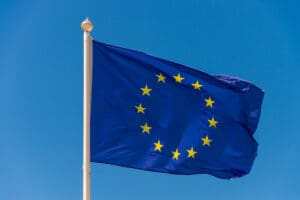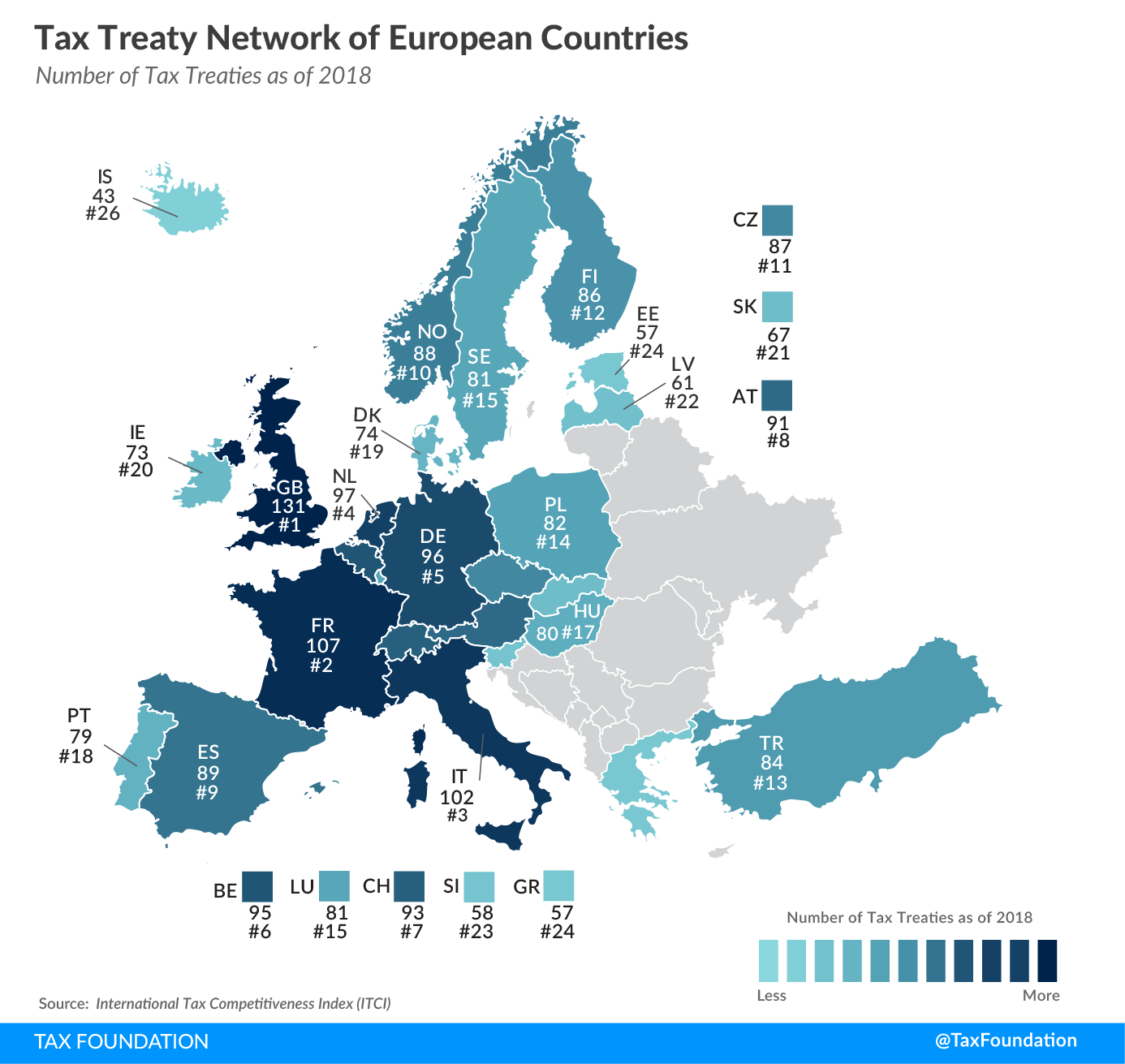
Tax Treaty Network of European Countries
1 min readBy:In an increasingly globalized world, many individuals and corporations work and do business abroad. As a result, jurisdictions need to define how income earned in foreign countries is taxed. Otherwise, income could be taxed in more than one country, resulting in double taxation. To avoid this, countries have negotiated double taxA tax is a mandatory payment or charge collected by local, state, and national governments from individuals or businesses to cover the costs of general government services, goods, and activities. agreements (DTAs).
These tax treaties align many tax laws between two countries. They usually provide mechanisms to eliminate double taxationDouble taxation is when taxes are paid twice on the same dollar of income, regardless of whether that’s corporate or individual income. of business and wage income earned by individuals who live or have their main income in one country but (temporarily) work in another country. Additionally, they often include the mutual reduction or elimination of withholding taxes on interest, dividends, and royalties earned by foreign individuals and corporations.
Tax treaties can provide certainty and stability for taxpayers, reduce tax evasion, and encourage foreign investment and trade. A broad network of tax treaties thus contributes to the competitiveness of an economy.
The United Kingdom has the broadest network of tax treaties in Europe (131 countries), reflecting its long economic and political history of global trade and investment. The UK is followed by France (107 countries) and Italy (102 countries).
The countries with the smallest network of tax treaties are Iceland (43 countries), Greece (57 countries), and Estonia (57 countries). On average, the European countries covered hold 82 double tax agreements.
International Tax Competitiveness Index
Stay informed on the tax policies impacting you.
Subscribe to get insights from our trusted experts delivered straight to your inbox.
Subscribe





